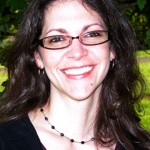The National Science Foundation has awarded a $1.2 million grant to Ithaca College to encourage students to pursue teaching careers in science, technology, engineering and math.

The grant, which is funded through the Robert Noyce Teaching Scholarship Program within the Division of Undergraduate Education of NSF, will support 18 undergraduate students interested in those fields.
Jeane Copenhaver-Johnson, associate professor and chair of the Department of Education, said the grant will establish a firm foundation for interested and enthusiastic STEM students who are unaware of the potential rewards of a teaching career.
“[What] this can do for Ithaca College students is provide not only a really wonderful preparation for teaching, but also open that field up to students who have not considered that as a professional possibility for them,” she said.
The NSF grant will help the Robert Noyce Scholarship Program run by the college address and remedy a shortage of quality STEM teachers, which are projected to plummet by 2015. More than 270,000 secondary school teachers are needed, according to a Business-Higher Education Forum report.
Joan Prival, lead program director of the Robert Noyce Scholarship Program, said the grant is meant to improve the quality of teachers across the country.
The college is one of 53 schools that have been awarded the grant. NSF received about 145 proposals. Prival said the college’s eligibility for the grant was determined by two major criteria: intellectual merit and broader impact.
Prival said there is a national need for teachers to maintain a strong science and mathematics enterprise to combat issues such as energy consumption.
Michael Rogers, associate professor of physics and principal investigator for the proposal, said after carefully reviewing prior proposals selected for the grant, he and his team set out to create a separate proposal for the college.
“There’s a lot that goes into that proposal,” Rogers said. “Since the program is primarily geared toward student preparation for STEM teaching, the college had to explicitly state how the grant will be utilized and prove its effectiveness in accomplishing this goal.”
Four professors in the departments of physics, mathematics and education teamed up with Rogers to write a 15-page proposal for the grant. Last semester, the professors met every two weeks to draft the proposal.
The first class of Noyce Scholars will be decided in fall of 2013. Rogers said students’ eligibility will be determined by their grades, letters of recommendation and their performance in the Early Field Experience Program, where students visit schools and have the opportunity to teach a class.
The scholarship program will help fund both undergraduate and graduate studies at the college.
Students who are chosen will receive a $20,000 scholarship toward their senior year of undergraduate studies. They will also be allocated $15,000 toward full completion of their graduate study at the college.
The teaching grant will also offer a stipend provided for summer research, funding for attendance to professional conferences and all-expenses-paid summer workshops, including a visit to the Frederick Douglass Academy in New York City.
For each year the Noyce Scholars accept the scholarship, they are required to teach for two years in a district with a high need for teachers. Prival said in order for a district to be considered high-need, it must meet three qualifications: high poverty, frequent teacher turnover and a large number of unprepared teachers — teachers who did not major in a STEM field, but are teaching the courses anyway.
However, Rogers said if students fail to teach in a high-need district within 10 years, the Noyce Scholarship will turn into a loan that students have to repay.
After Noyce Scholars receive their licenses in teaching, they will have to relocate to middle schools and high schools within areas meeting this criteria, such as New York City, Washington, D.C.,
and Boston.
Robert Noyce, the name-bearer of the scholarship, was a researcher and scientist in the semi-conductor industry. He is also the co-founder of Intel.
Prival said the title for the scholarship was designated by Congress because of Noyce’s large contribution to technology.
“He was a man of great accomplishment as a scientist and also had a lot of interest in science and math education,” Prival said.
Andrew Smith, associate professor and chair of the biology department, said the scholarship program will have a direct impact on the methods of teaching preparation and making the profession attractive to students.
“Their goal is to train for teaching science at the middle school [and] high school level,” he said. “They are interested in studying the effect of that to see if this advance training does work.”
Aaron Weinberg, associate professor of mathematics and co-principal investigator of the proposal, said the program is something the country needs.
“We have not only a shortage of really strong math and science teachers, but in particular, there are a lot of school districts in high-need districts where there is an unquestionable shortage of talented teachers,” he said.







